Being a digital nomad means that you have decided to become location independent rather than spending your life tied to an office desk. You certainly don’t need to buy courses to learn how to do it simply because this is not a job but a different lifestyle.
But not everything is beaches, mojitos, and tropical weather. Unnecessary bureaucracy and visa issues come with traveling.
Best Digital Nomad Visa Programs 2022
CyprusMontenegroGeorgiaBahamasAntigua & BarbudaBarbadosBermudaCayman IslandsCroatia Czech RepublicCuracaoCosta RicaDominicaDubai Estonia Germany Mexico AustraliaPortugalSpain Montserrat MauritiusItaly – Coming soonRomania – Coming soonGreece – Coming soonThailand – Coming soonIndonesia – Coming soonCape Town – Coming soonSri Lanka – Coming soon

Check out our best digital nomad insurance plans!
29 Countries Offering Digital Nomad Visa or Residency
Cyprus
Cyprus is the latest country to launch a Digital Nomad Visa, which allows up to 100 non-EU applicants to live and work from the country from January 2022.
Conditions
Applicants could be self-employed, or freelance.Permits will be issued for one year, with the option to renew for two further years.Spouses and children of digital nomad visa holders are allowed to live in Cyprus as long as they do not take up paid employment.The applicant for a digital nomad visa must earn at least EUR 3,500 per month, plus 20% for their spouse and 15% for each minor.A certificate of police clearance from the country of residence is needed.Only 100 applications will be accepted (for now).
Bonus
To become a tax resident of Cyprus, a digital nomad must spend only 60 days in the country each year. This provides ten months of travel time while still taking advantage of tax benefits.
Cyprus is actively strengthening its digital infrastructure by deploying 5G networks across the country.
Montenegro
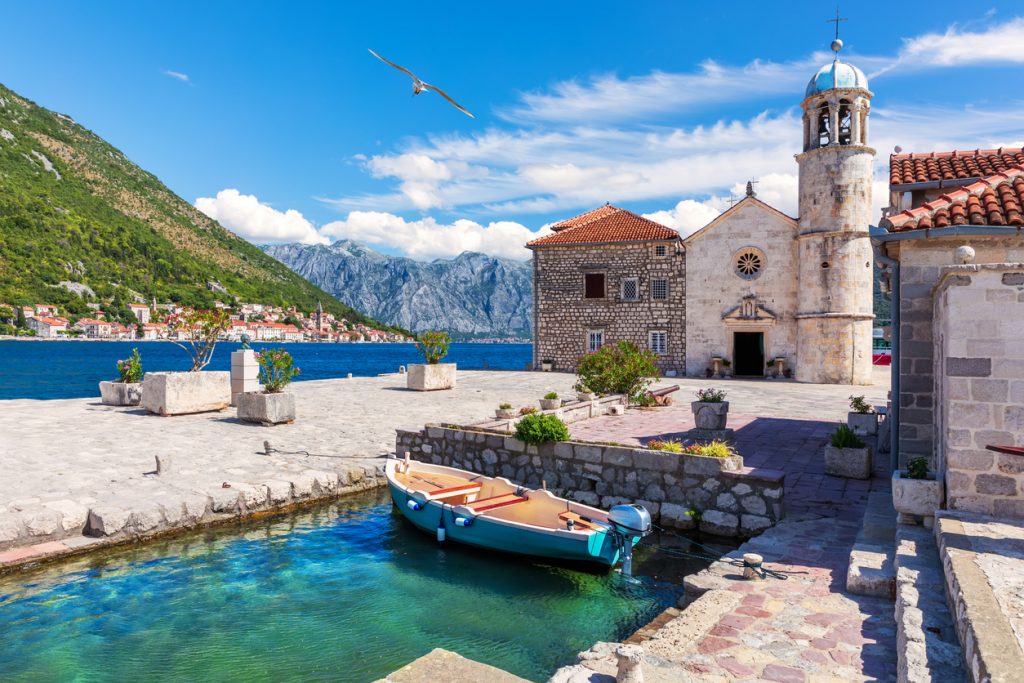
This popular destination does not have exactly a visa for remote workers and digital nomads. However, they can apply for a temporary residence permit that will allow them to stay for 1 year or more in the country.
The most straightforward way to obtain a temporary residency permit in Montenegro is to register a business and appoint yourself as the CEO.
Requirements
A valid passport Education degrees.A certificate of police clearance from the country of residenceDocuments demonstrating the availability of at least €3,650 deposited in a Montenegrin bank account.Marriage certificate (if applicable). Proof of accommodation.Health Insurance
Note that a temporary residence permit must be renewed each year and can be changed to a permanent residence permit after five years.
Experts say that establishing a Limited Liability Company (LLC) is the most straightforward way to obtain temporary residency in the country.
The main requirements for this type of company are:
1 – 30 shareholders which can only include yourself.A minimum of €1 in starting capital.An executive director who lives in Montenegro.Foundational documents of the company certified by a court.
The process of obtaining temporary residency and establishing a business is straightforward. All documents, however, must be translated into Montenegrin to be valid.
Georgia
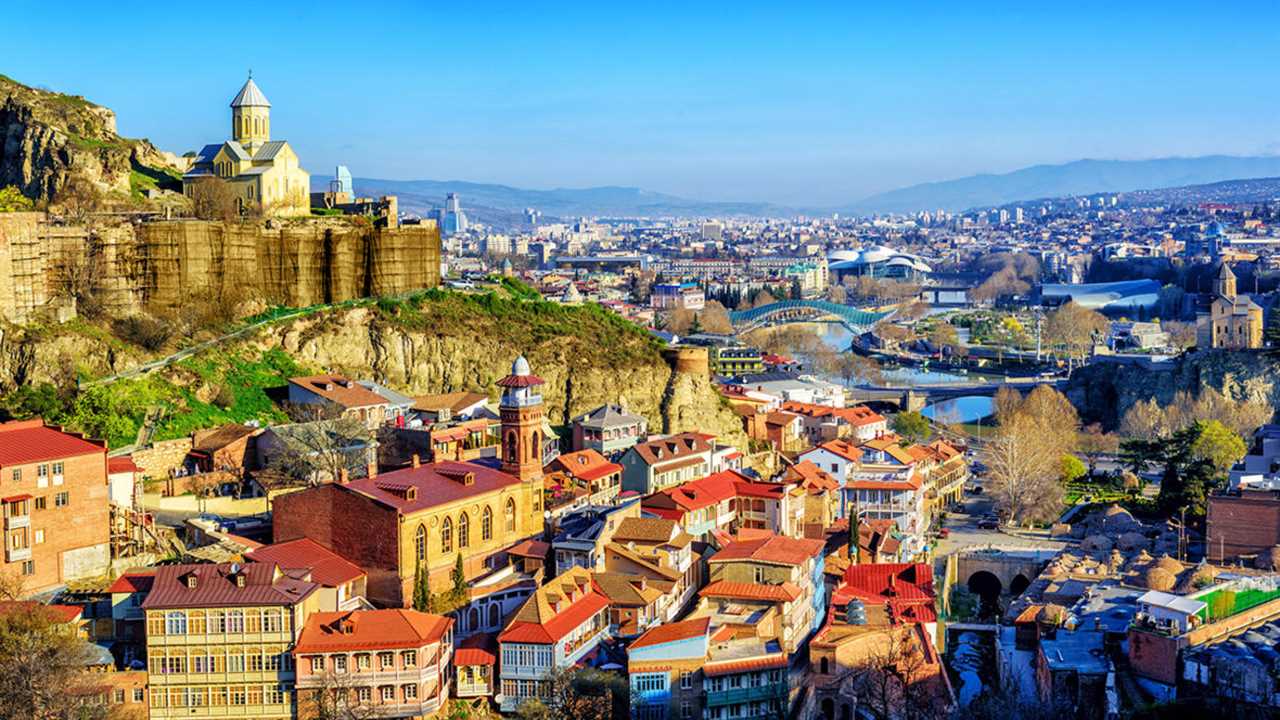
Tbilisi, Georgia – Photo: Shuttershock
Digital nomads, remote workers and entrepreneurs who work remotely from 95 countries, including the United States, Italy, Spain, and United Kingdom are now welcome to apply to Remotely From Georgia, a program that allows you to live and work from beautiful Georgia for up to 1 year.
Conditions
You must make $2000 a month or have a bank statement showing at least $24,000Under the Individual Entrepreneur scheme, Georgia will only tax you 1% on your business turnover up to about $155,000.
Benefits
Application fee: this is one of the few visa programs offered for free!Length: Up to 1 year. However, those who register a business as Individual Entrepreneur can also apply for permanent residency.
Where to apply
Apply for free at Remotely from Georgia Decision – 10 working days to be processed
Bahamas
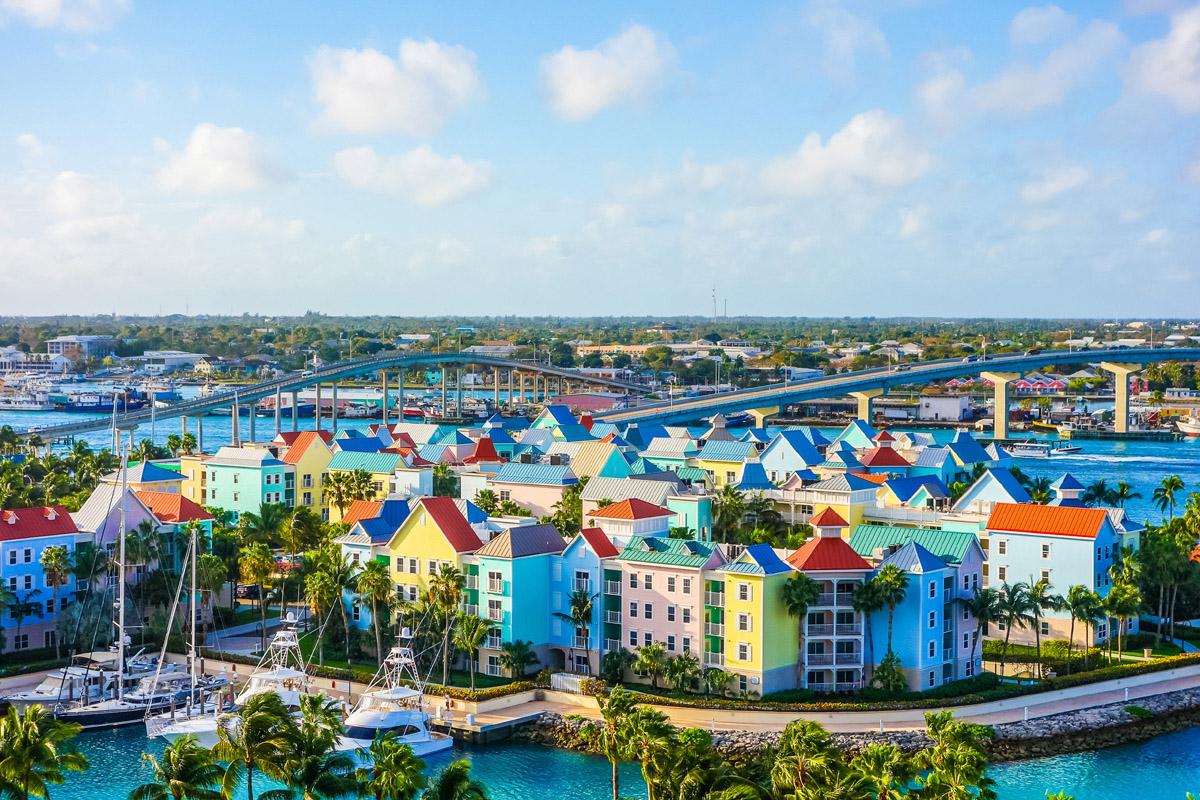
The Bahamas
The Bahamas Extended Access Travel Stay is a one-year residency permit designed to allow digital nomads, freelancers, remote workers, and students to work from any of the 16 tax-free amazing islands comprising The Bahamas.
Requirements
Application fee – Applicants will need to pay both an application and a permit fee* Total cost $1,025 USD per person.
– Individual Applicants:
Application Fee – $25 USD per person
Permit Fee – $1,000 USS
– Family Applicants:
Application Fee – $25 USD per applicant, and $25 for each dependentPermit Fee – 1,000 USD per applicant, and $500 USD for each dependentIncome to prove: a letter from your current employer or proof of self-employment showing income.
Benefits
Length: The Bahamas Extended Access Travel Stay is valid for up to 1 year. This visa could be renewable on a case-by-case basis for a maximum period of up to 3 years. *Citizens from the USA, Canada, the EU and Britain do not need an additional travel permit.
Malta
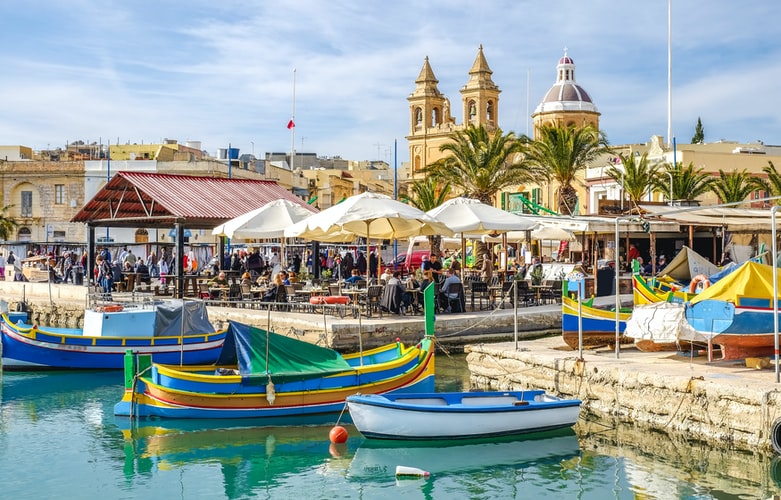
Marsaxlokk, Malta
This island nation has introduced a new Digital Nomad Residency for digital nomads and remote workers willing to live by the Mediterranean Sea.
The initiative offers a six-month visa program with an option of getting a one-year “Nomad Residence Permit.”
Applicants must either own an overseas company or be remote workers or freelancers with clientele based abroad.
You will need to:
Pass a standard background checkPurchase health insurance Have a valid passport Demonstrate a minimum monthly income of EUR 2,700Rent or buy a propertyWrite a letter of intent clearly stating your motivations for moving to the country
Last but not least, the Maltese government has expanded this opportunity to third-party non-EU nationals!
ntigua & Barbuda
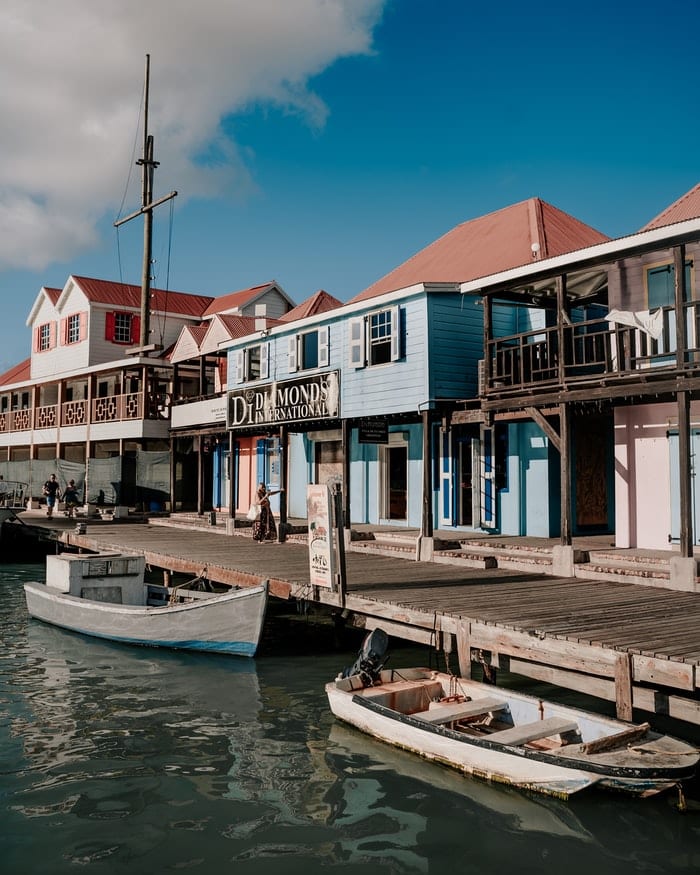
Antigua & Barbuda is offering a new visa called the Nomad Digital Residence (NDR). It is intended for digital nomads that can support themselves and any family members.
This visa lasts 2 years and beneficiaries will need to get a health insurance plan.
What to expect
You need to own a location independent businessIf you do not, you should work remotely for a company based outside of Antigua & BarbudaYou must make at least USD $50,000 per year
How to get it
Fill out the online application formSubmit proof of employment and a police background checkPay $1,500 for one person, $2,000 for a couple, $3000 for a family of 3 or more
Barbados
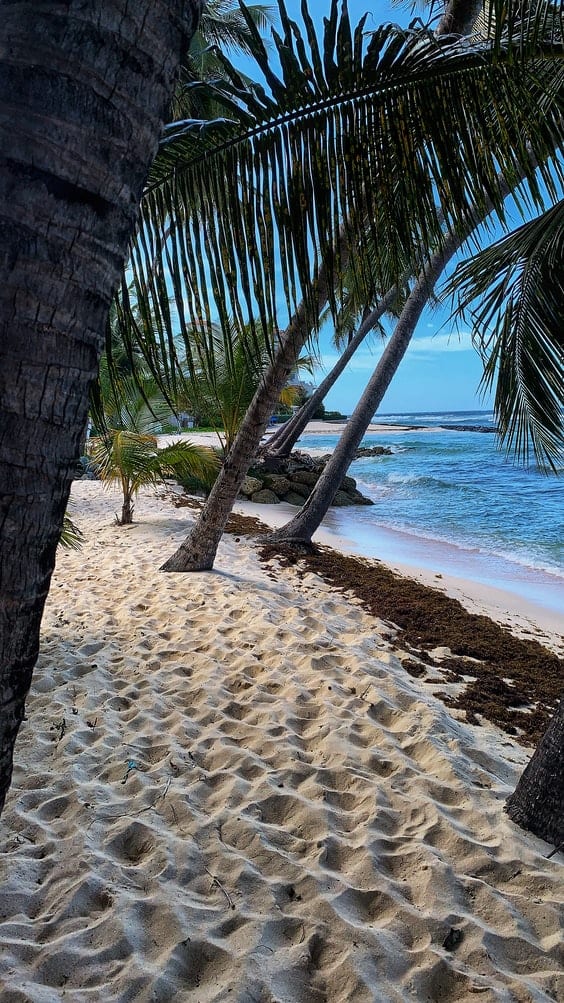
Barbados has also decided to follow the digital nomad boom. The country is now offering The “Barbados Welcome Stamp”, a 1 year working holiday visa for digital nomads. The visa costs $2,000 for individuals, and $3,000 for families.
What to expect
You need to own a location independent businessIf you do not, you should work remotely for a company based outside of Barbados
You must make at least $50,000 per year
And you must undergo a mandatory COVID-19 test and a 48-hour quarantine upon arrival.
How to get it
Fill out the online application formPay the $2000 for the visa
Bermuda
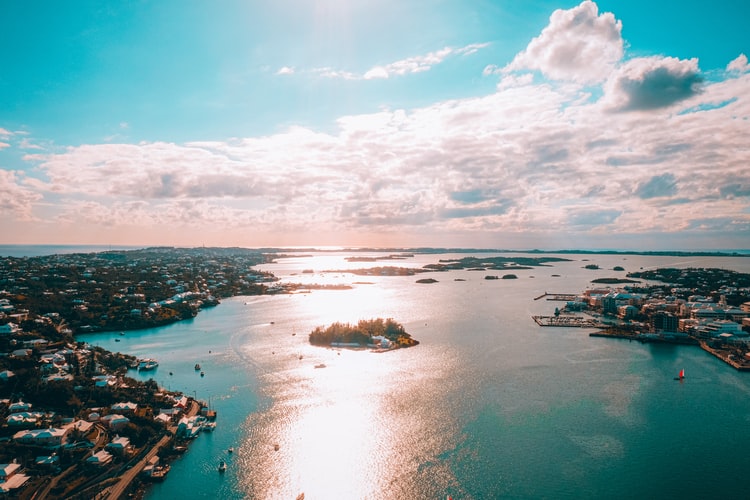
Bermuda, Bermuda
“Work From Bermuda” is a new visa program for remote workers and digital nomads Bermuda has launched. This initiative aims to attract “executives and students to work and study remotely from the island in a stunning and worry-free environment.”
The country states to be ready to receive these workers given they already have multiple co-working spaces, vacation and electric car rentals, and other venues that will allow applicants to enjoy life and work on this beautiful island for up to a year.
The best part of this offer is that there is no minimum income requirement!
Conditions
You own a location independent business or You work remotely for a company based outside of BermudaShow proof of travel insurance
How to get it
Fill out the online application formSubmit any required paperwork and pay the $263 visa fee
Cayman Islands
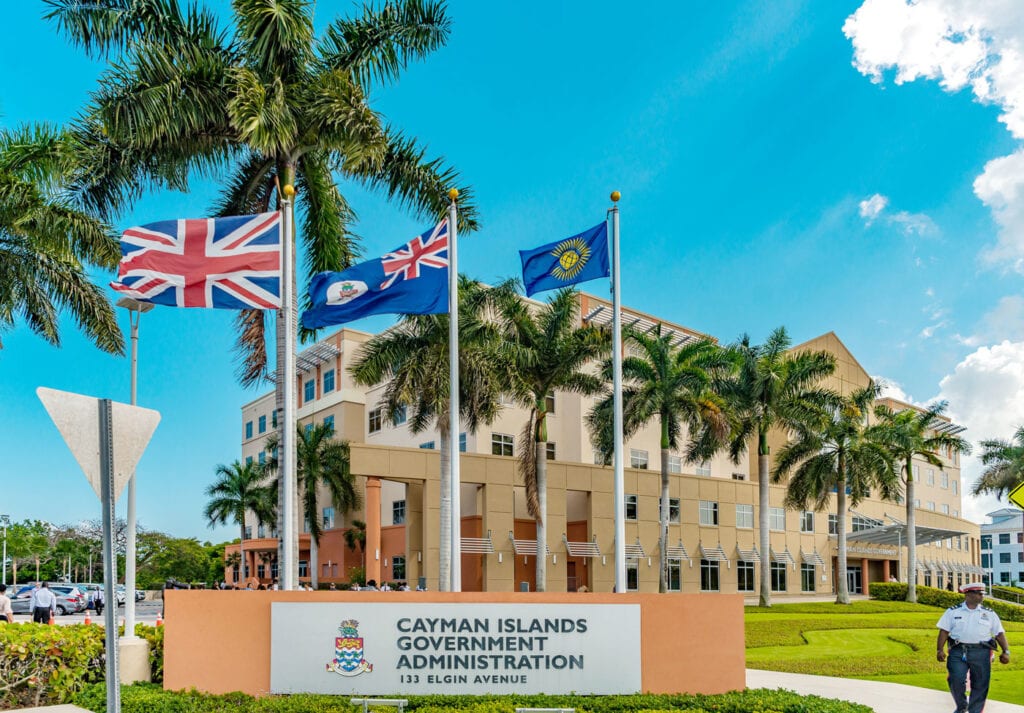
The Cayman Islands Department of Tourism has just launched a special visa for digital nomads called the Global Citizen Concierge Program (GCCP) that will allow nomads to live and work in the country for up to 2 years.
The minimum income requirement is a bit more expensive than other countries. If you are not there yet, this visa may be the motivation you need to make the leap to a six-figure earner. Digital nomads need to present proof of an annual salary of at least USD $100,000, or USD $150,000 for couples.
Since this is a whole new program, the full list of requirements has not been released yet. But we have gathered some conditions here.
You must be employed by a company outside of the IslandsYou will need a notarized bank reference letterAll applicants are subjected to background checksYou will need to get a health insurance policy
How to get it
Fill out the online application formPay the application fee of USD $1,469
For further info click here.
Croatia
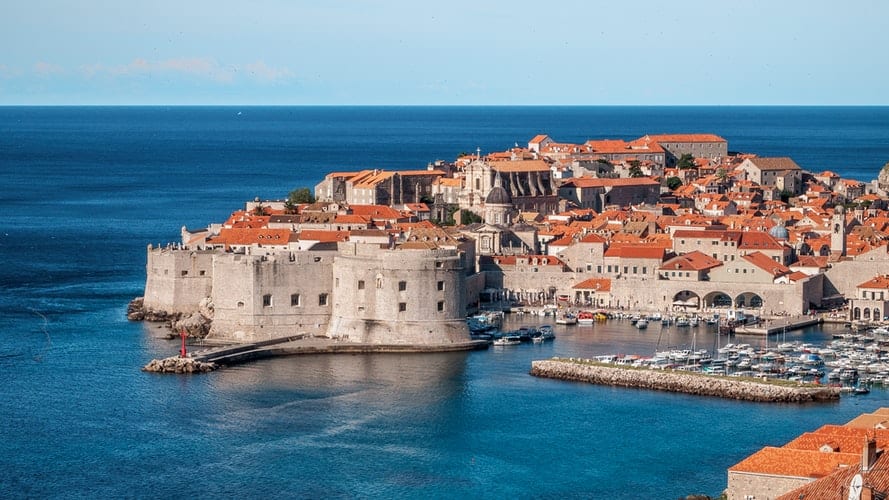
This visa for digital nomads in Croatia is now a reality. As of now, the country is offering visas for digital nomads for up to 12 months with no extension. The applicant has to be a third-country national and work for a non-Croatian company.
You will need to:
1. Fill in this form. 2. Submit a copy of your passport3. Buy health insurance that covers Croatia. 4. Prove that you work on communication technology for a foreign employer.5. Having a bank account with a minimum of HRK 28,800 (USD $4,544.81)To find more information about Croatian visas for digital nomads click here.
Czech Republic

Spend your weekends exploring the historical towns and mountains of one Prague, one of the best cities for digital nomads with the new freelancer visa called the Zivno.
This visa allows digital nomads to live and work in the country for 1 year and offers the possibility of one extension. The catch is that this one is a bit more difficult to get, but still not impossible.
How to get it
You will need a trade license for one of the trades listed hereShow proof of accommodation for at least a year in order to qualifySubmit proof of at least €5,587 in your bank account (per person)And pay about USD $80 USD) per month in local taxes
For more info about this visa click here.
Curacao
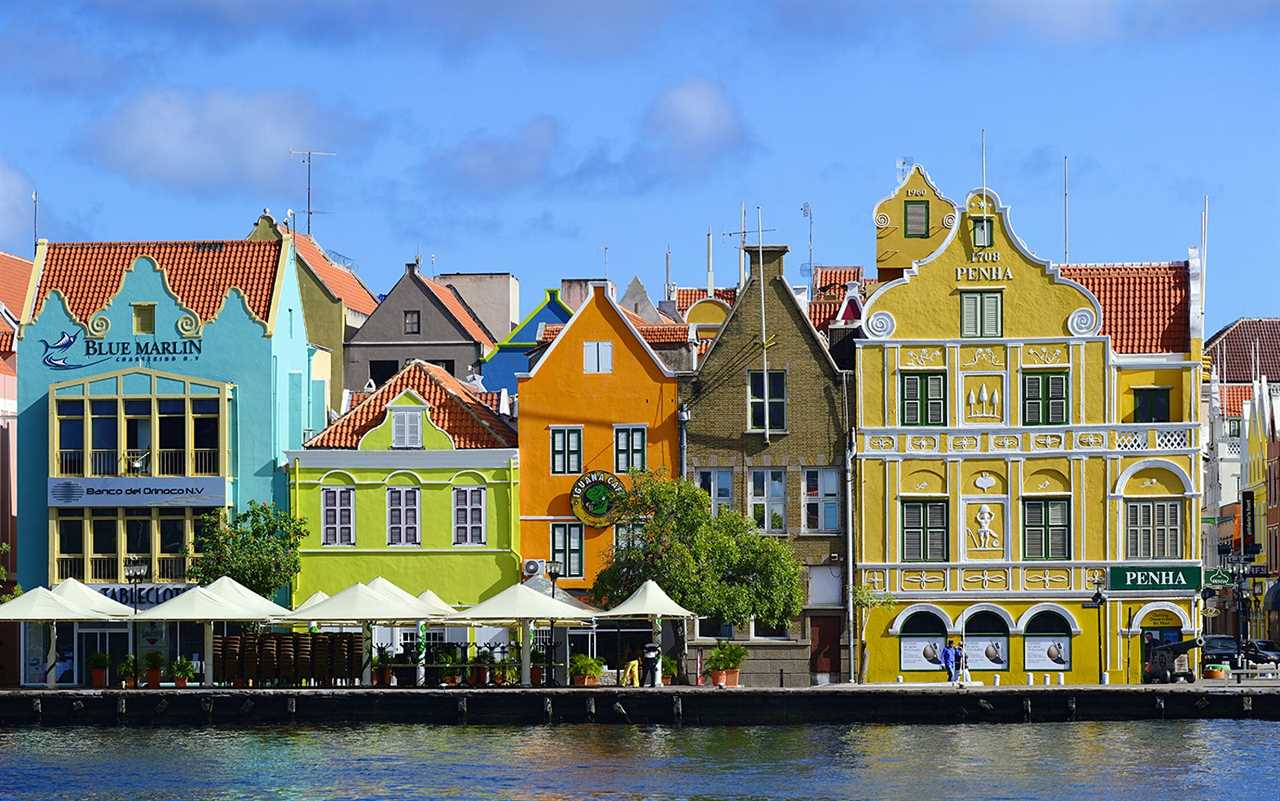
Curacao – Credit – Herve Hermis – Getty Images
The paradise island of Curacao is now offering a new initiative for digital nomads and remote workers named @Home in Curacao program. For those who haven’t visited it, Curacao gathers one of the most interesting mixes of cultures in the Caribbean, from Spanish, to British to Dutch people and much more.
How to get it
You need proof of a contract with a foreign companyOr you need to be a partner or shareholder of a foreign company Or you are a remote worker, digital nomad or freelancer whose clients are foreign citizens living outside Curacao
Documents and others
Of course, you need to submit your passport identification page.Purchase travel insurance that covers COVID-19 related expenses.
The application fee is only USD $300
As they say, why not change your cold weather for a tropical island where you can work from?
Costa Rica
Over the last decade, Costa Rica has been known as the Switzerland of Latin America. A stable democratic country with lots of investment on social programs and natural resources plus a tax system that benefits expats.
This amazing country is now offering a new type of residency visa for digital nomads and remote workers. To qualify, applicants need to show proof of a non-locally monthly salary, fixed income or an average monthly income, during the last year, for an amount equal to or greater than $3,000 per person or $4,000 per family.
Conditions
Applicants must make, at least, USD 3,000 per month or make a deposit of $60,000 in a Costa Rican bank.
How to get it
Hire an immigration lawyer who knows how to navigate the Costa Rican system or just do the registration process by yourself at their official website. Translate all of your documents to Spanish and authenticate them in your home country.Purchase a medical insurance policy that covers you throughout your stay in Costa Rica.Pay a one-time visa fee
Read our full post: Costa Rica President Signs Digital Nomad Visa Initiative into Law
Dominica
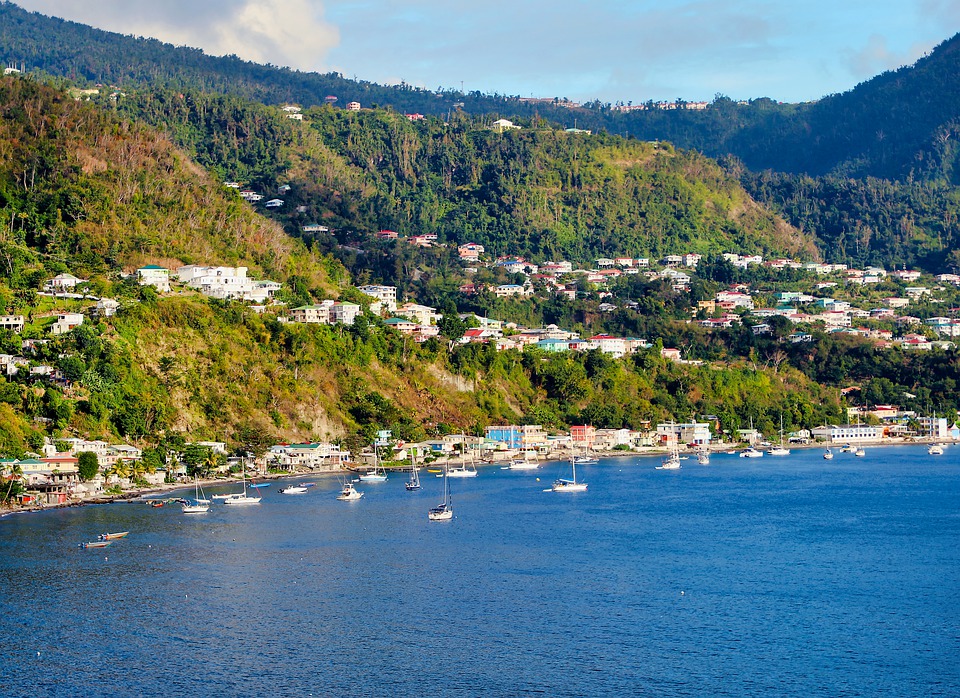
Dominica, Island Country
Dominica (not to be confused with Dominican Republic) is another Caribbean nation launching its own “Work in Nature” visa that will allow remote workers, digital nomads and freelancers to live and work “in the nature” of the island for up to 18 months.
How to get it
In order to be eligible you must,
Have clean criminal recordsBe able to work remotelyMake USD $50.000 per year or morePay USD $800 for the visa fee and USD $1,200 for families. Additionally, you should pay a non-refundable $100 fee.
This $50.000 also includes other eligible family members such as
Wife or partner Underage children Other family members (conditions apply)
This initiative looks to also create a remote working village for digital workers specifically, with special services and venues.
Dubai
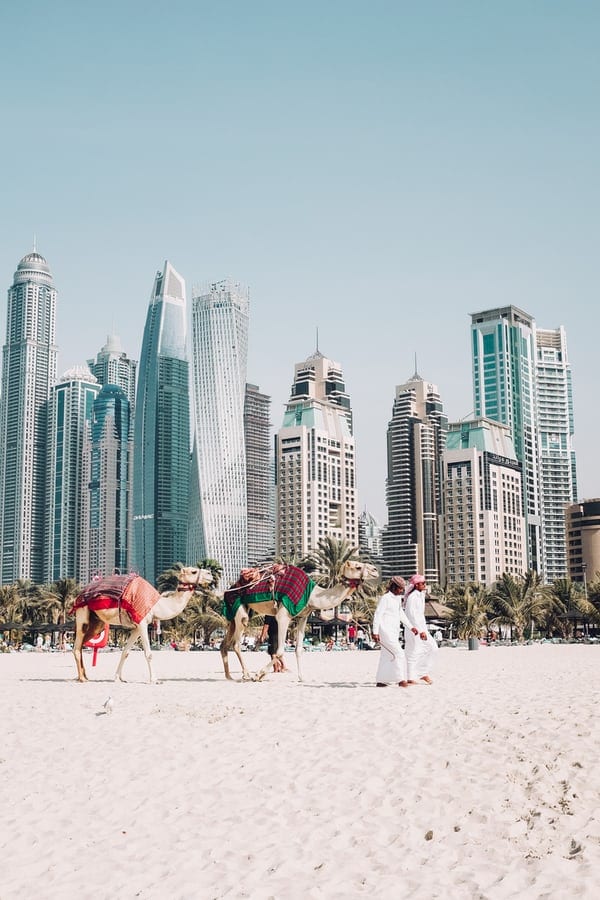
Just this year, Dubai launched their remote work and travel visa. For only USD $287.
How to get it
You will need to submit proof of medical insurance with UAE validityProof of employment from your employerOne year contract and monthly salary statements (This one may be tough because most of us work freelance jobs and may not have these documents)
Estonia
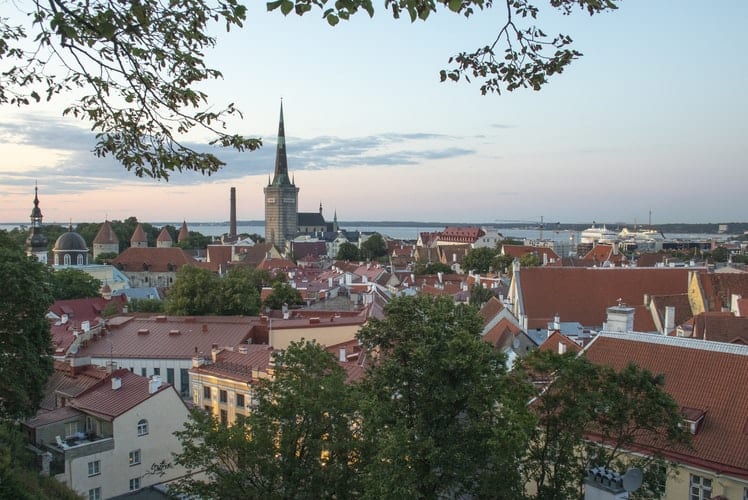
Estonia became the first European country to launch an e-residency program that allows digital nomads to register an EU-based online business.
This year, they also started a new digital nomad and freelancer visa that allows foreigners to live in the country for 1 year.
What to expect
You will need to own a location independent business or be hired by a company based outside of EstoniaYou will need to make at least €3504 per month for the last 6-months to be considered
How to get it
Fill out the online application formMake an appointment at your nearest Estonian Embassy/Consulate to submit itPay €80 per a short-stay visa or €100 per a long-stay one
Germany

This is a perfect visa for digital nomads. The “Freiberufler” can be extended for up to 3 years.
What to expect
To be granted this visa the local tax office must deem your freelance job “liberal” versus a commercial profession. Only then, they will determine whether you qualify or not.You will be asked to pay taxes to the German government.
Germany also has another special freelance visa called the Aufenthaltserlaubnis für selbständige Tätigkeit. This one allows digital nomads and self-employed people to live in the country for 6 months to 3 years.
How to get it
You will need to get a local address in GermanySubmit proof of health insuranceProof of financial self-sustainabilityThis one is tough – You have to work with clients based in Germany. The government needs to see that you are helping the local economyPay €100 for the visa fee
Mexico
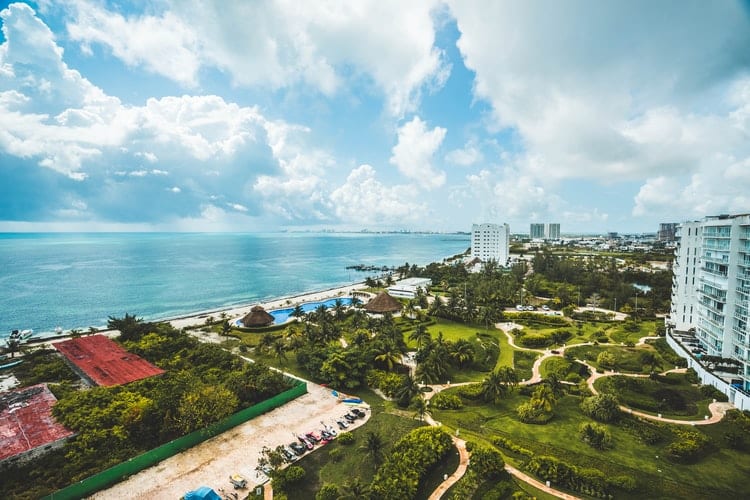
Mexico is one of the digital nomad hot-spots plus it is offering a temporary resident visa that allows us to live and work in the country from 1 to 3 years in a row!
What to expect
You need to own a location independent businessIf you do not, you should work remotely for a company based outside of MexicoYou must make at least USD $1,620 per month or have a bank balance of USD $27,000
How to get it
Fill out this applicationformMake an appointment at a Mexican consulate to hand in your documents in person
ustralia

An Australian Working Holiday Visa is a long term visa that allows digital nomads to work and live in the country for 1 year.
The catch is that you must be between 18 and 35 years old to qualify for this visa. If you are, you will have the possibility to extend it for 1 more year -this is important- if you do some sort of farm work in rural Australia.
Many people visit Australia just to experience first hand its rich fauna. If you are interested in volunteering or working with animals in Australia find out what programs will also qualify you for a visa extension.The extension of this visa may not be advisable for digital nomads since most of us have little to nothing about farm work.
We recommend you to consult with your embassy about these types of visas in Australia so you know first hand about the special conditions.
Portugal

Portugal offers not only a temporary resident visa but also a residence permit for digital nomads and entrepreneurs.
These types of visas have the possibility to be extended from 1 to 5 years. And for one year, with the ability to renew for up to 5 years. The best part about this visa is that after five years you can apply for permanent residency.
You will need:
Proof of income coming from property, business or other financial meansMake at least €600 per monthGet private travel/health insuranceAgree to a criminal background check
Spain

Spain offers one visa that can be used for digital nomads willing to live and work from the country and it’s working on another one for start-ups.
Self Employment Visa
This allows digital nomads from the EU and third-party countries to live in the territory for 1 year.
What to expect
You must prove that you have sufficient funds to “establish and maintain employment indefinitely” Pass a background check
For more info about this visa click here.
The Start-Up Law – visa
This is an initiative that would allow non-EU nationals to live, work and create start-ups in the country for up to a year.
Characteristics
Personal income tax reductionsTax incentives for startup companies and investorsNon-Residents tax rate could be reduced from 24% to 15% (conditions apply)Read our full post: Spain to Introduce Visa for Digital Nomads and Remote Workers
Spain also offers a Non-Lucrative Visa that allows foreigners to live in Spain for 1 year and a possible extension. The catch is that you are not allowed to work on this visa. The Spanish government aims to take in “retired” and self-sufficient folks.
Montserrat
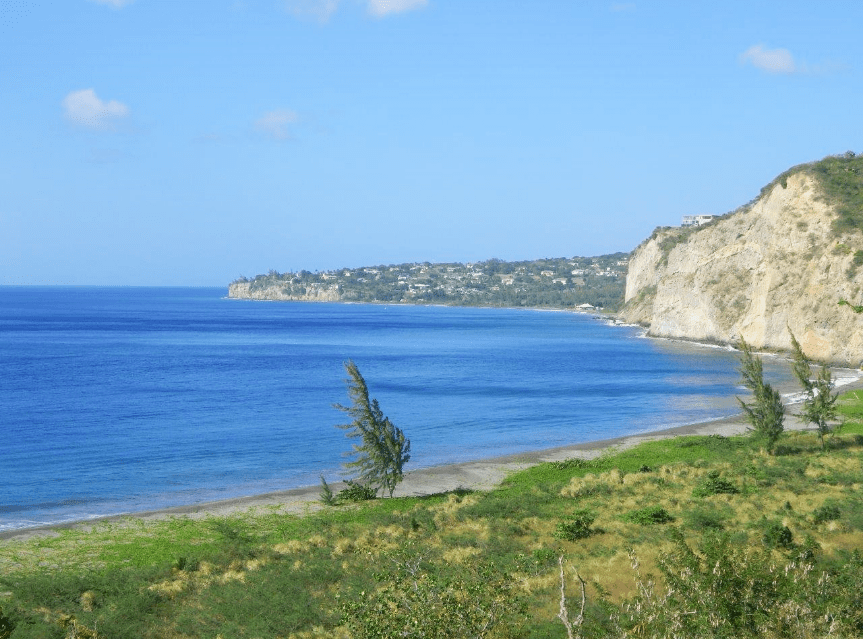
Foxes Bay Monserrat – Credit visitmonserrat.com
Digital nomads are now welcome to join a new remote work program called Montserrat Remote Work Stamp. This program allows foreign digital nomads to work and live in the caribbean island for 12 months, and if you are happy enough, you can be eligible for an extension.
You will need to:
Pay $500 per applicant.Show proof that you work for a foreign employer or have a company overseas.Show proof of an annual income of minimum $70,000.Buy health insurance.
And finally you only need to wait for 7 business days to get approved!
For further information click here.
Mauritius
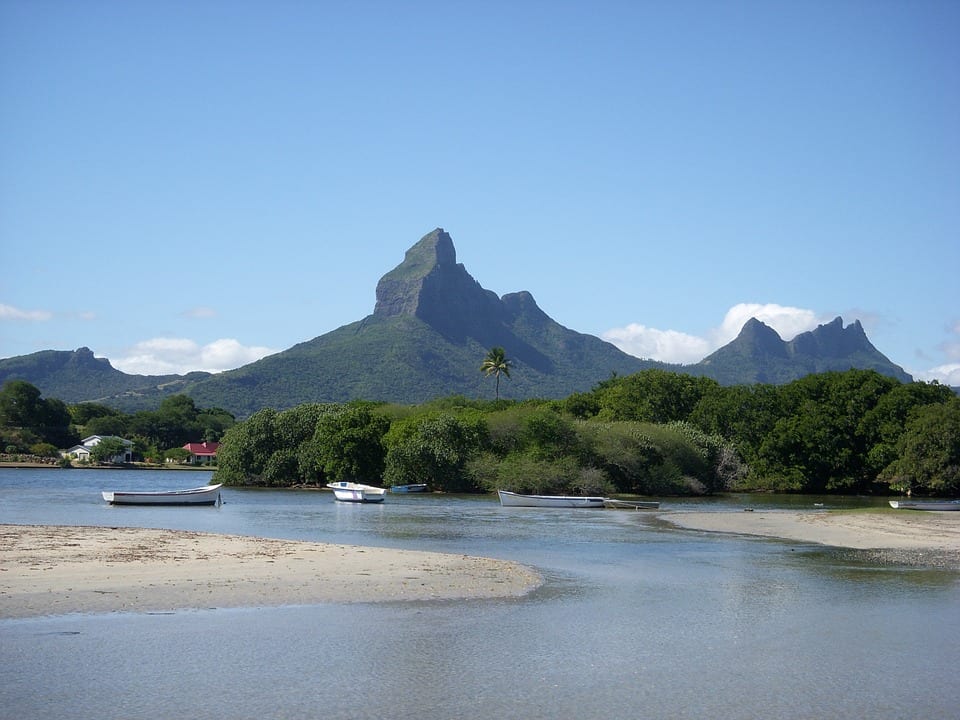
Mauritius mountains
Mauritius is another island country that has recently joined the club of places offering visas for digital nomads and remote workers. Beneficiaries can work and live in the country for 1 year (Renewable). So far, the application is for free!
You will need to:
Make sure that your source of income is out of the island country so you don’t compete against local workers.Meet the cost of staying in the country (USD 1500 monthly) per person and additional USD 500 per dependents below 24 years old.Buy travel insurance.Have a valid passport.Buy a return ticket.And be a foreign national from one of these countries:
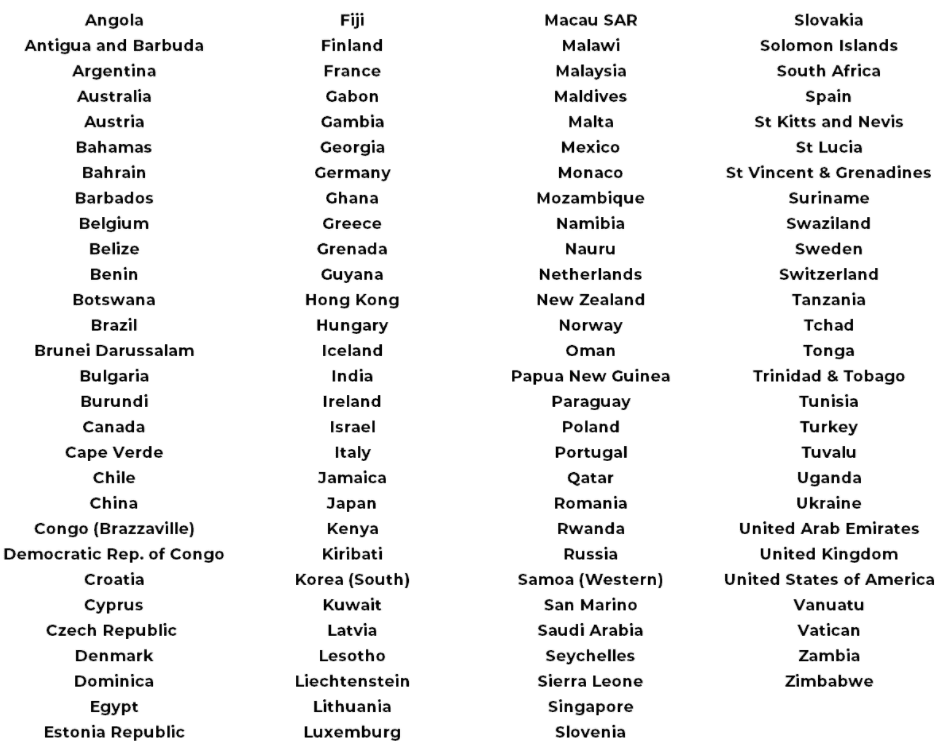
Nationalities eligible for digital nomad visa in Mauritius
Italy

Italy has put forward plans to introduce visas for digital nomads and remote workers outside the European Union. The initiative was approved March 28 and will allow non-residents to work remotely in the country for up to a year.
However, the law might not be designed to welcome everyone to live the Italian dream since these visas are aimed to attract “highly qualified” remote workers -only-.
The term “highly qualified” is yet to be clearly defined by the Italian authorities. But, as per local media, it could mean anything from “college professors to circus performers.”
This is what Italian MP Luca Carabetta has to say about the requirements: The government must work on a new bill to implement the law, which will set out all the procedures and details,” Carabetta said.
“Requirements for the remote worker are the availability of suitable housing, adequate income, health insurance and a clean criminal record.”
“We are happy to have approved the proposal but we are also aware of the next steps.
Romania – Coming soon
Romanian authorities such as the MPs and the Ministry of Research, recently introduced a draft law looking to regulate the implementation of a new visa which would allow digital nomads and their families to live and work in Romania for longer than a tourist visa normally permits them.
The main conditions would be:
Proof of being an employee or the owner of a company registered outside of RomaniaProof of health insurance proof of no criminal recordVisa fees have yet to be announced
Greece – Coming soon
Greece’s government is working on creating a new visa for digital nomads, remote workers and investors that allow foreign nationals to live, work and pay (potentially reduced) taxes in the country.
According to Migration and Asylum Minister Notis Mitarachi, the government is looking to create “an organized, attractive environment for people that choose this advanced way of working.”
The launching date is yet to be confirmed.
Thailand – Coming soon
1. Visa for Digital Nomads and Remote Workers (Up to 4 years)
The Board of Investment (BOI) has included digital nomads and remote workers on their Smart Visa program. So far, the Smart Visa only includes investors, executives and startup entrepreneurs who want to work in and live in the country for up to 4 years.
The changes on the Smart Visa program have already been approved and the application details should be released over the weeks to come.
Applicants need to take into account that even if this visa is intended to target freelancers or digital nomads, those will have to show proof of qualification and professional experience (to be screened by BOI partners).
For more information, click here.
2. Visa for Wealthy Digital Nomads, Remote Workers and Retired Professionals (Up to 10 years)
Thailand plans to offer a new visa program targeting wealthy digital nomads, remote workers and retired professionals who are willing to invest at least $500,000 in government bonds or real estate, confirmed Prime Minister Prayuth Chan-ocha this week.
In order to be eligible, applicants need to demonstrate “a minimum income of $80,000 per year. Retirees will need to invest at least $250,000 and earn a minimum of $40,000 a year.”
Accepted citizens will be allowed to live and work in Thailand for up to 10 years. An initial five-year trial period will roll-out from 2022.
During this period, the government expects to collect investments for up to ($24bn) as well as Bt270bn of additional tax revenues.
The visa application process has not been released yet.
Indonesia – Coming soon
Indonesia, the home to the resort Island Bali, is planning to offer visas for digital nomads and remote workers to live and work in the country for up to 5 years. Tourism Minister Sandiaga Uno, the same minister who is currently going above and beyond to reopen Bali, made the announcement a few weeks ago.
This one is one the most expensive visas of our list. Applicants have to make a deposit of USD $142,300 per person or USD $178,000 per family. Let’s see if the government changes their mind and makes it more affordable for the digital nomads waiting for this dream to come true.
For further information, click here.
Cape Town – Coming soon
Chosen multiple times as “The best city in the world” by the Telegraph Travel Awards due to its infrastructure, fast internet connection, and international atmosphere, Cape Town is ready and working to become the next digital nomad hot spot.
The Western Cape provincial government looks to convince the Department of Home Affairs to allow them to develop a new “remote working visa” so they can target this demographic.
Companies such as the Western Cape tourism company Wesgro and Airbnb have already taken the lead in the process by signing an agreement to promote the region as the best place for digital nomads to work and live.
“Digital nomads will now be able to take advantage of the Western Cape’s tech- and entrepreneur-friendly economy at an affordable price,” said the DA’s provincial spokesperson for Finance, Economic Development, and Tourism, Deidré Baartman.
Sri Lanka – Coming soon
The Sri Lankan government is taking steps to attract digital nomads and remote workers with its recently approved long-term one-year visas. The decision was approved by the Cabinet of Ministers on July 12.
The government took into account that digital nomads are not “sensitive to seasonal travel,” so those were perfect to help them “boost off-season tourism.”
The requirements to be eligible are yet to be announced.
Read our full post: Sri Lanka Announces the Launch of 1-year Visa for Digital Nomads
The post 29 Best Digital NOMAD VISA and Residency Programs for Remote Workers in 2022 appeared first on Traveling Lifestyle.
-----------------------------
By: Maria Valencia
Title: 29 Best Digital NOMAD VISA and Residency Programs for Remote Workers in 2022
Sourced From: www.travelinglifestyle.net/countries-offering-digital-nomad-visas-and-residency/
Published Date: Sat, 09 Apr 2022 18:47:00 +0000
Read More
 Privacy PolicyTerms And Conditions
Privacy PolicyTerms And Conditions
